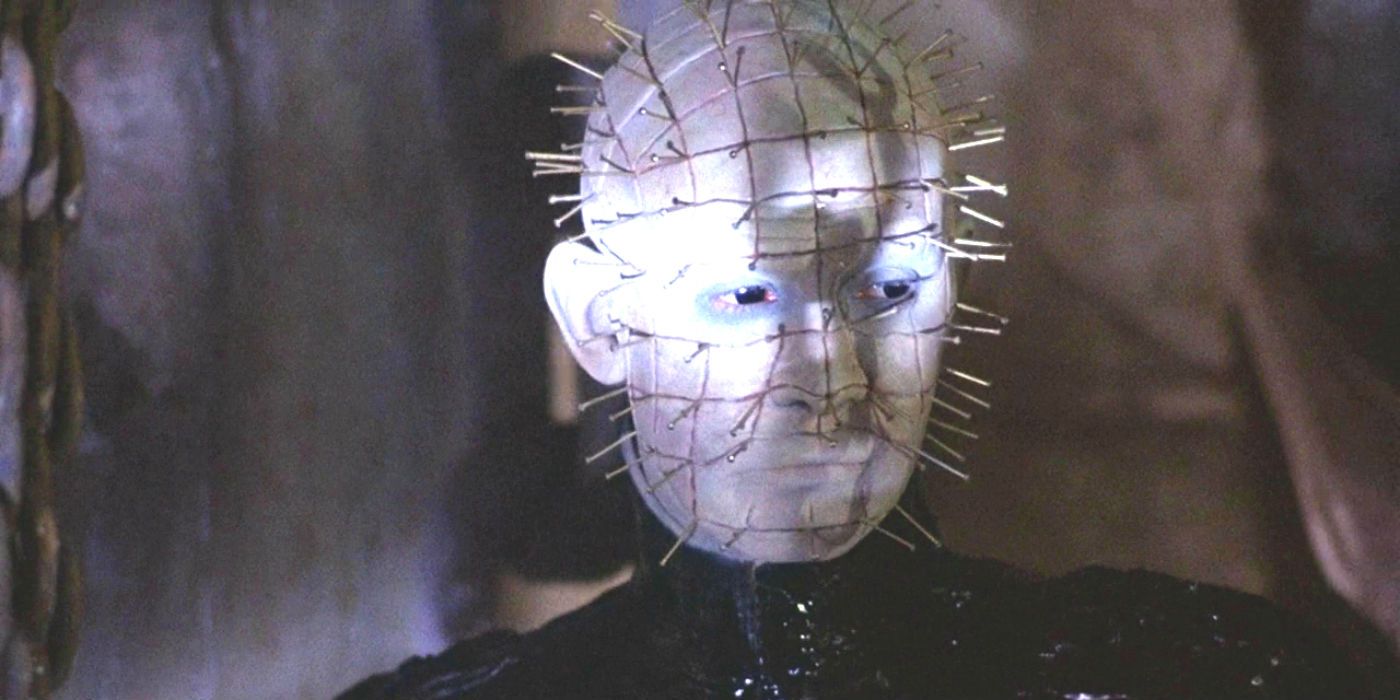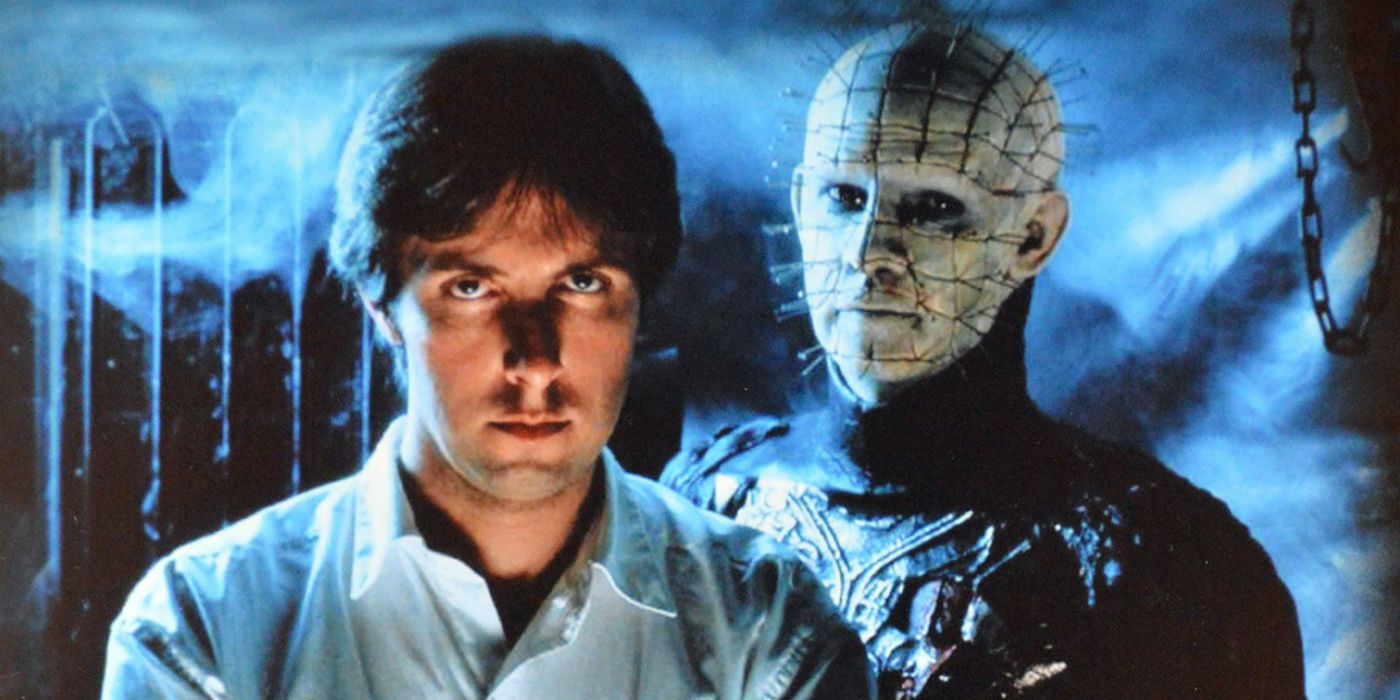Clive Barker's classic horror film Hellraiser often gets lumped in with the 1980s slasher crowd, but it really shouldn't be, and here's why. Not that being associated with the slasher sub-genre is anything to be ashamed of. They absolutely ruled the 1980s, a decade many horror fans still hold up as the best for the genre to date, even if they were born after it was over. The 1980s gave rise to countless iconic horror figures, both protagonists and antagonists, and many of the greatest were indeed part of slasher films.
Some of the great franchises rightfully classified as slashers include Halloween, A Nightmare on Elm Street, Friday the 13th, Child's Play, and Scream, although that one was the rare hit slasher to come out of the 1990s. That's some prestigious company, full of films and moments millions of horror fans hold dear. No, being labeled a slasher isn't an insult by any means. The problem becomes when an iconic 1980s horror movie gets thrown in with that lot for reasons not entirely clear.
Hellraiser generally gets mentioned among the 1980s slasher flock, but it really doesn't belong there, for several reasons. Not least of which is that creator Clive Barker didn't at all set out to make a slasher movie.
Why Hellraiser Shouldn't Be Considered A Slasher Movie
With Hellraiser, writer/director Clive Barker managed to do what many authors often struggle with, craft a streamlined version of his own book. Barker's novella The Hellbound Heart contained many aspects that would've been hard to convey in a visual medium like film, especially on a limited budget, so Barker stripped it down a bit, retaining its essence. The first major reason Hellraiser isn't a slasher film is that the body count isn't the point. The kills are merely a gory device used to advance the plot and expand the characters. Also, Pinhead, Hellraiser's ostensible slasher, isn't a slasher at all. He barely kills anyone himself, and doesn't do it for fun or sport.
While Kirsty Cotton can be seen as Hellraiser's "final girl," she hardly seems like the stereotypical virginal survivor. Then there's Hellraiser's script, which has way more depth than the majority of slasher flicks. If anything, Hellraiser is almost a domestic drama masquerading as horror, focusing as it often does on a love triangle between Julia, Frank, and Larry, as well as Kirsty's strained relationship with her parents. Hellraiser is much more cerebral than most mainstream horror, and the concepts it presents are much deeper than watching a guy in a mask chop up people who smoke weed. Not that there's anything wrong with that, when it's done well.
The only real understandable reason why Hellraiser gets so often called a slasher movie - aside from it releasing in the sub-genre's glory days - is that the sequels past Hellbound: Hellraiser 2 tried their best to make Pinhead a slasher, having him spout Freddy-esque one-liners, and kill gleefully. Still, movies like Hellraiser: Inferno have much more in common with Jacob's Ladder than Friday the 13th.


